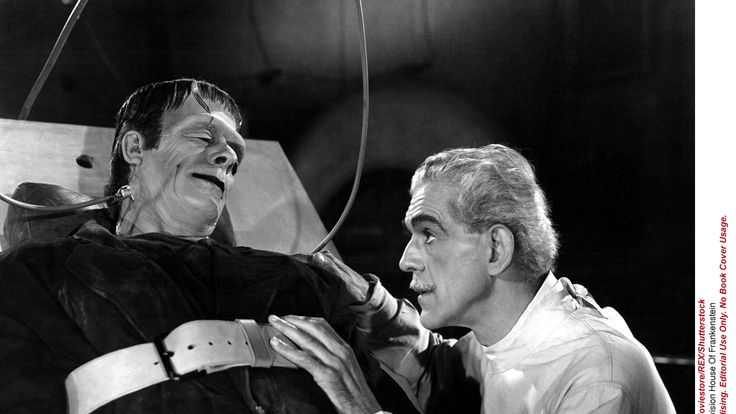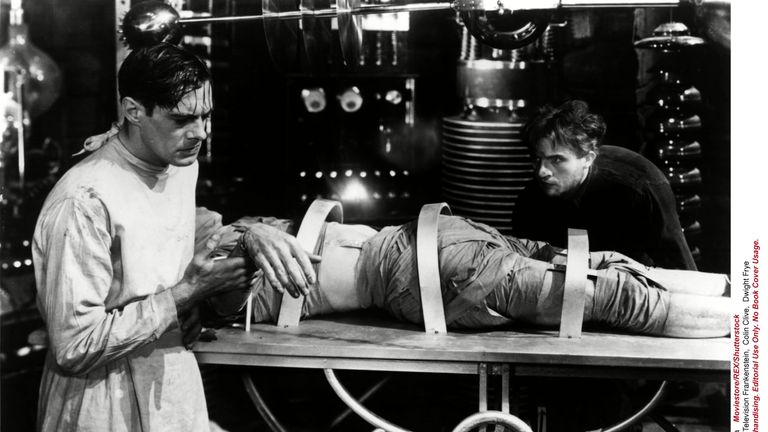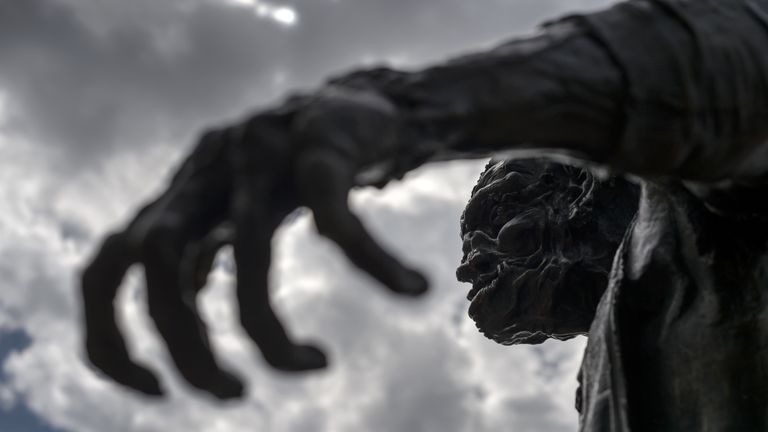Sky Views: Facebook - the modern Frankenstein

Saturday 24 March 2018 06:57, UK
Adam Boulton, Editor-At-Large
This year is Frankenstein's 200th birthday. 2018 is the bicentenary of the publication of Mary Shelley's novel Frankenstein Or The Modern Prometheus.
Most of us are more familiar with the story from films. Countless versions have been made since the seminal 1931 horror movie starring Boris Karloff.
From the very beginning almost everything about the story has conjured darkness - Mel Brooks' Young Frankenstein excepted.
Famously Mary Shelley first started to write as part of a ghost story competition with two poets, her husband Percy Shelley and Lord Byron, and their companion Dr Polidori, who wrote a short story called The Vampyre.
It was not a happy house party. Byron and Shelley were practically on the run having offended social conventions in England. They were all briefly holed up in the Villa Diodati on the banks of Lake Geneva during "the year with out summer", when the aftermath of a volcanic eruption in Indonesia blocked out the sun's rays, making much of the world cold and dark.
Mary Shelley's tale has held us in chilly fascination ever since. Frankenstein is about the scientist Dr Victor Frankenstein giving life to a creature or monster which he has constructed from stolen body parts. Spurned by humans and without a mate, the creature turns murderous.
Frankenstein has been used many times as a metaphor for science out of control. Most often this is applied to biology, the science of life, such as the widely successful campaign against "Frankenstein Food", made from GMOs or genetically modified organisms.
Revelations this week show that scientific innovation can get out of the control of its creators, with highly damaging consequences for people even when no living organisms are involved.
In some ways Facebook is a tech version of Frankenstein's creature - behaving in ways that its founder, like Dr Frankenstein, admits he never foresaw.
Mark Zuckerberg describes the use of data from 50 million people taken from Facebook on behalf of Cambridge Analytica as "a major breach of trust". He concedes that "trolls" and "bots" tried to use Facebook to effect the outcome of the 2016 US Presidential election, and that efforts are still under way to do the same in votes around the world.
Zuckerberg says Facebook will respond by protecting its users and ensuring that Facebook cannot be used for covert political operations, but it is far from clear how these aims will be achieved.
It's not just a problem for his company which had $50bn wiped off its value in the four days since last Saturday when the New York Times, The Observer and Channel 4 started publishing detailed evidence backed up by a whistleblower. Other tech companies have been hit as well. Apple Inc lost $15bn of share value and Alphabet Google's parent company was down $26bn.
Facebook is part of what traders have warily nicknamed the FANG - made up of the initials of Facebook (2004), Amazon (1994), Netflix (1997) and Google (1998). They are all incredibly young, as shown in the year of foundation listed above.
Essentially their founders were tech Dr Frankensteins - building businesses by applying the technological body parts shaped by the likes of Microsoft (1975) and Apple Inc. (1976). Other innovators in this generation which have become near household names include Wikipedia (2001) and Paypal (2002).
Facebook is the youngest and perhaps the most powerful of all these. As our Technology Correspondent Tom Cheshire put it last week when we were discussing whether people should shut their accounts - for many people Facebook is the internet.
Facebook also has by far the youngest founder and chief executive. Mark Zuckerberg is just 33 years old. Larry Page and Sergey Brin at Google are each 44, Elon Musk and Peter Thiel at Paypal are 46 and 50 respectively. Jeff Bezos is 54 and had a career in business and finance before Amazon, as did Jimmy Wales (51) at Wikipedia and Reed Hastings (57) and Marc Rudolf (59) the two veterans at Netflix.
As Zuckerberg says himself, he was "just a kid" when he started Facebook as a 19-year-old Harvard undergraduate. Facebook has happened incredibly quickly and Zuckerberg admits he has "made every kind of mistake that you can make".
He now says that Facebook has never been in the business of selling information about its users although, notoriously, in the early days he described those willingly revealing themselves to the site as "dumb f***s".
More telling still, the young libertarian who once declared that privacy is no longer a norm sees a need now for outside regulation by governments. "I'm not sure we shouldn't be regulated," he conceded in a rare interview granted to CNN after this week's disaster. "The question is what is the right regulation."
Fourteen years ago Zuckerberg never dreamt he'd be asked "to help protect the integrity of elections".
Now he says sorting the problems thrown up by this week's scandal "isn't rocket science… we can get ahead of this".
Facebook is unlikely to share the bleak fate of Dr Frankenstein and his monster.
The creature committed suicide rather than do further damage to humankind.
Nor is the founder of Facebook likely to heed the dying words of Dr Frankenstein: "Avoid Ambition!"
Sky Views is a series of comment pieces by Sky News editors and correspondents, published every morning.
Previously on Sky Views: Ian King - US must stop dragging its feet over RBS fine


